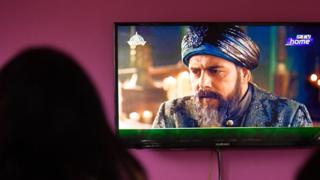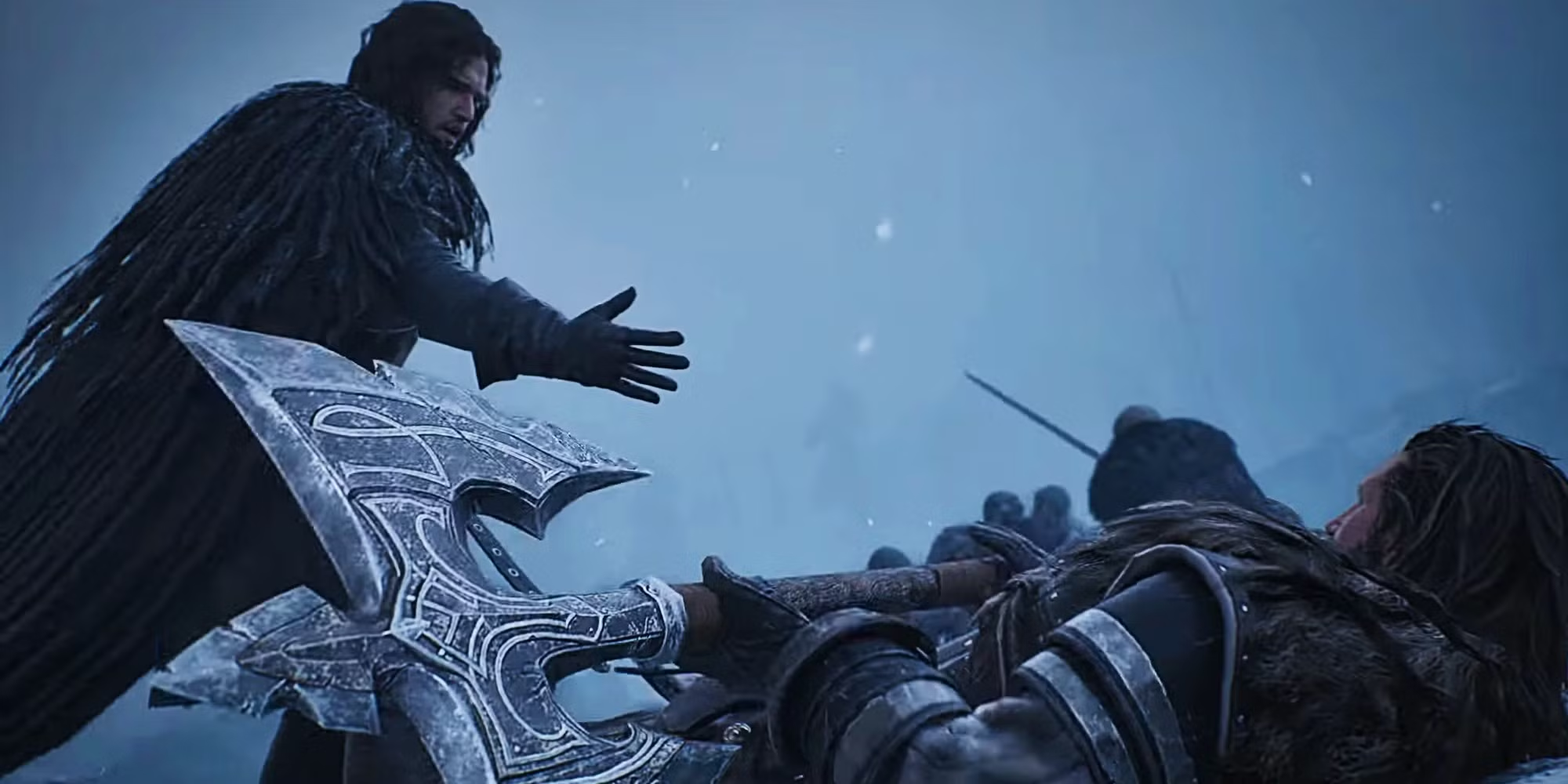
AFP/GETTY IMAGES
Ertugrul has been called the Muslim Game of Thrones
A popular Turkish historical TV drama, Dirilis Ertugrul (Ertugrul’s Resurrection) has been all the rage in Pakistan since the state broadcaster began airing a dubbed version in April.
The show’s immense popularity has generated contrasting opinions in Pakistan. Some feel it’s a threat to local culture and promotes violence, while others support it for glorifying Muslim heroes.
But it’s not just celebrities and analysts who are commenting on the show – the country’s politicians are also actively involved in the debate.
This is not the first Turkish drama that has become popular in Pakistan. But what is different about Ertugrul – often described as the Muslim Game of Thrones – is that it’s being promoted directly by Prime Minister Imran Khan for reasons thought to be personal and political.
Counter-narrative against ‘Islamophobia’?
Mr Khan is possibly one of the main reasons why this foreign serial is creating waves in Pakistan.
He not only recommended the show and told PTV to air it but said it would help Pakistan understand the significance of Islamic civilisation.
Ever since his remarks, the serial – which is being aired as Ertugrul Ghazi (warrior) in Urdu – has been breaking viewership records in Pakistan.
Critics believe Mr Khan has backed the show because he relates to its promotion of Islamic values and it matches his goal of establishing Pakistan as an ideal Islamic society.
Since he took over as prime minister, Mr Khan has been saying that “I want to create a Pakistan which is in line with the first Muslim society created by Prophet Muhammad in Medina.”
But it seems to be more than just a matter of personal interest.
An article in the leading daily Dawn suggests that “the reason may lie in a much-publicised, behind-the-scenes meeting, where Prime Minister Khan met with Turkish President [Recep] Tayyip Erdogan and [then] Malaysian Prime Minister Mahathir Mohammad at the UNGA [UN General Assembly].”
In September 2019, Mr Khan along with Mr Erdogan and Mr Mahathir floated the idea of launching a TV channel to create a counter-narrative against what they said was rising Islamophobia.
Image copyright
Samir Hussein
Some think the decision to promote Ertugrul in Pakistan is political
Mr Erdogan praised the drama for “entering the nation’s heart” at an award ceremony in Turkey in November 2016. By promoting the show, Mr Khan “was also probably trying to score political points in Turkey, a country with which Pakistan is strengthening its partnership”, The Diplomat said in an article.
But the Pakistani PM has been facing some criticism at home for backing it openly.
Opposition senator Mushtaq Ahmad Khan recently said in parliament: “You [Khan] cannot build the State of Medina by broadcasting the Ertugrul show”, Dawn reported.
‘Rightly glorifies’ Muslim values
The series is based on the life of the 13th-century Muslim Oghuz Turk leader Ertugrul, whose son Osman Ghazi is considered to be the founder of the Ottoman Empire.
It depicts the bravery of Muslim Oghuz Turks fighting the Mongol invaders, Christians, Byzantines and the Knights Templar in Anatolia.
In Pakistan, some media outlets such as the Naya Daur website find that the drama “glorifies the Muslim value system and the Ottoman Empire”.
An article in popular local daily The Nation also believes that the drama “rightly glorifies Muslim heroes, Islamic history and ethics”.
Muslims have mostly been shown “through the gaze of negativity” in TV serials and films, hence this serial is a welcome change, analysts say.
“Muslims craved for a powerful and positive depiction in the media globally. And Dirilis Ertugrul seems to have satiated that desperation to see a glorifying depiction of Muslims,” says an article in English-language website The Global Village Space.
Some, such as journalist Aamna Haider Isani – writing in The News daily – feel the show has served an “extremely important purpose of combating Islamophobia in the world”.
But critics such as activist Pervez Hoodbhoy disagree.
“If it [Ertugrul] seeks to project Islam as a religion of peace and to counter Islamophobia, then the very opposite is achieved,” he wrote in Dawn, citing the extensive violence and beheadings shown in the drama.
And some, such as social activist-turned-politician Jibran Nasir say the show is creating an “identity crisis” among Pakistanis.
Image copyright
AAMIR QURESHI
A family in Islamabad watches the show on the state-run channel
Turkish media have also noted the popularity of the drama in Pakistan.
State-funded Anadolu Agency on 24 May quoted locals in Pakistan praising the show for “raising the Islamic flag” and “showing how a Muslim leader should be”.
Comparisons with ‘lifeless domestic issues’
Some feel the absence of good content in Pakistani TV serials is also one of the reasons for the foreign drama’s massive popularity.
Several Pakistani Twitter users feel Ertugrul is “a distinct piece of entertainment over the typical and lifeless storyline of domestic issues in Pakistani serials”, according to The Global Village Space.
“It is more than evident that there are far too many channels and not enough quality content being made,” says an article in The News.
Pakistan’s TV industry is popular, but it isn’t particularly known for its focus on Islamic values, though it has produced shows like “Alif” in this genre.
Pakistani producers are feeling threatened by the Turkish series, and many people, including federal minister Fawad Chaudhary, fear that foreign content will ultimately harm the local entertainment industry.
But amid the raging debate, journalist Isani hopes that “Ertugrul” will inspire Pakistan to make better productions at home.




















![[Book Review] The Blade Itself (The First Law Trilogy) by Joe Abercrombie](https://bendthekneegot.com/wp-content/uploads/2018/01/1516047103_maxresdefault-218x150.jpg)
















